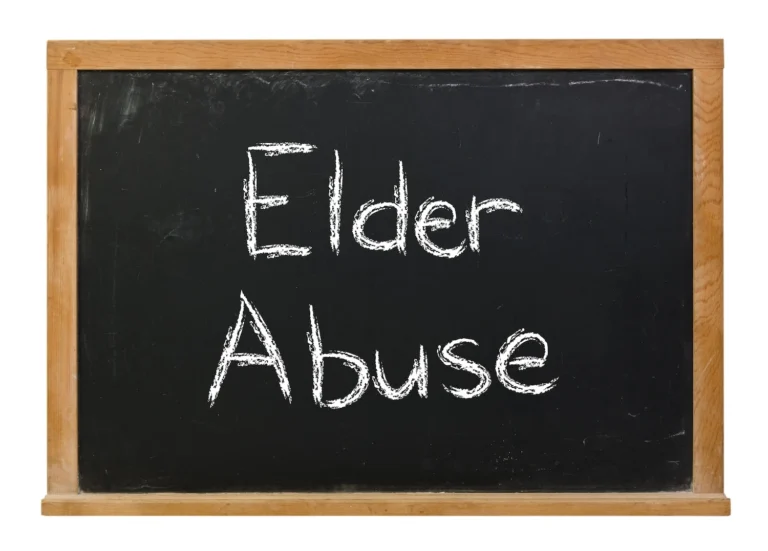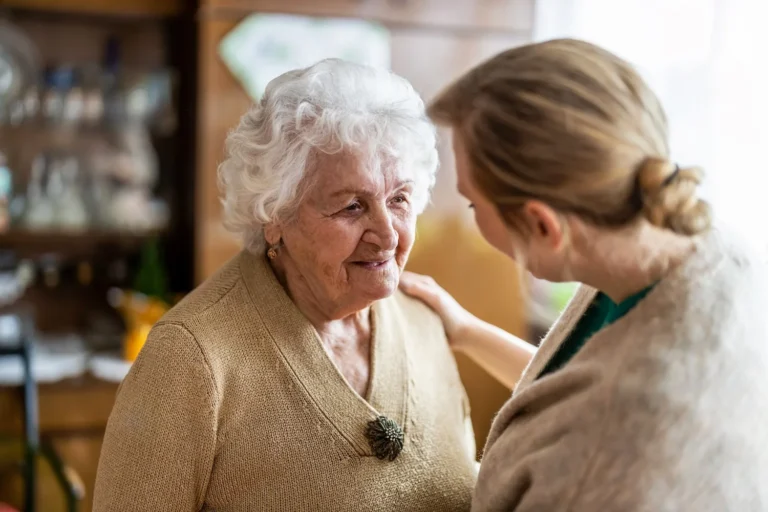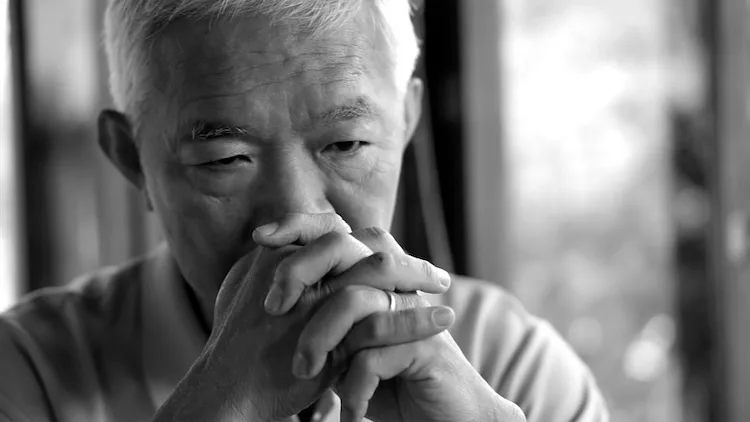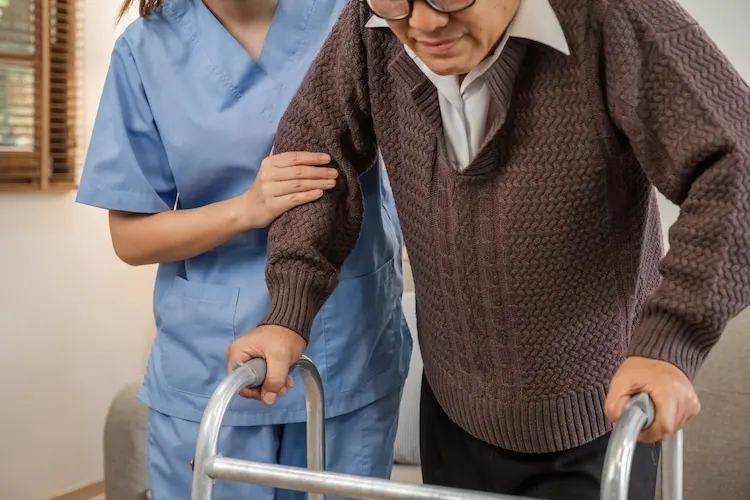Nursing Home Negligence
Understanding Nursing Home & Elder Care Injuries
Caring for an elderly loved one in a nursing home or assisted‑living facility often comes with peace of mind—until neglect or injuries shatter that trust. There are signs that occur in nursing homes that should not be ignored. Whether you’re concerned about bruises, bedsores, falls, medication errors, or emotional abuse, it’s essential to understand your legal rights and options.
At the Law Offices of Steven Gacovino, P.C., we represent families across New York State whose loved ones have suffered injuries due to inadequate care. This page will help you recognize when care goes wrong and what steps you need to take to pursue justice and compensation in a nursing home or care facility case.
Types of Injuries in Nursing Home & Elder Care Settings
Elder care injuries stem from both active mistreatment and neglect. The most common include:
- Bodily injuries from falls: broken hips, head trauma, fractures
- Medication errors: wrong dosage or contraindicated drugs
- Emotional and psychological abuse: isolation, threats, humiliation
- Dehydration and malnutrition: weight loss, organ failure
- Pressure ulcers (bedsores): signs of poor hygiene or turning schedules
- Infections and untreated wounds: sepsis, UTIs, gangrene
- Restraint injuries: bruises, circulation issues, psychological harm
- Wrongful death: due to neglect, improper transfers, or untreated illness
Negligent conditions like understaffing, unsanitary facilities, and inadequate monitoring often contribute to these injuries. Under New York law, failing to ensure a resident’s dignity or safety is actionable.

When “Not Reckless” Behavior Still Counts as Negligence
You may hesitate to sue if an injury doesn’t look “reckless” or if you like the staff members who have been caring for your loved one. But even well-meaning staff can be negligent by:
- Infrequent repositioning, leading to bedsores
- Skipping ambulation or assistive exercises, causing muscle atrophy
- Failing to follow up on abnormal vital signs
- Delaying doctor notification after falls or behavioral changes
- Overlooking dehydration, resulting in acute medical events
These omissions violate the Federal Nursing Home Reform Act, which guarantees residents the right to dignity, hygiene, safety, and proper medical care
Want a Free Confidential Consultation?
Who Has Legal Standing to File a Lawsuit in New York?
The right to sue (standing) is not always limited to a resident’s spouse or children. Under New York law, courts permit standing in certain cases to:
- The resident themselves, if mentally and legally capable
- A legal guardian or power‑of‑attorney
- A personal representative or executor after death
- In wrongful death in a nursing home case, specific family members such as surviving spouse or children can sue.
In rare circumstances, even siblings or more distant relatives may have standing if appointed to act for the resident or estate.

Statute of Limitations & Important Deadlines
New York law requires filing a nursing home injury claim within three years of when the injury was discovered or should have reasonably been discovered (CPLR § 214). Reporting a nursing home case is important. A wrongful death claim must be filed within two years from the date of death.
Delaying can mean losing your legal rights entirely, and gathering evidence is more difficult as time passes.
What to Do if You Suspect Nursing Home Negligence
If you think your loved one was harmed in a nursing home, here are the steps you should take immediately:
- Document visible injuries: bruises, rashes, bedsores, bruises, or other marks.
- Keep a written log of symptoms, changes in behavior, meals skipped, off-schedule medications.
- Take dated photographs regularly.
- Retain medical records and incident reports.
- Request staffing schedules, care plans, and physician orders.
- File a complaint with the NY State Department of Health or the local ombudsman.
- Contact a Nursing Home / Elder Care Injury Lawyer to assess your legal options.
- Avoid signing any facility-controlled settlement offers without legal counsel.
The Critical Role of Bedsore Injuries in Elder Care Claims
What Are Bedsores, and Why Do They Matter?
Pressure ulcers—commonly known as bedsores—develop when prolonged pressure cuts off skin circulation, leading to tissue breakdown and infection. Nursing home residents, especially those with limited mobility or underlying health issues, are particularly vulnerable.
Data shows that nationwide, more than 10% of nursing home residents suffer from pressure ulcers—higher still in New York facilities. New York State is a leading state with among the highest incidents of bedsores as well.
Why Bedsore Claims Are Strong Evidence of Neglect
Bedsores typically develop over 24–48 hours in immobile patients and are considered preventable with proper care. Failure to reposition residents, inadequate hygiene, and poor nutrition are hallmark signs of negligence. If you suspect negligence leading to bedsores in a care facility, call our team immediately.
Bedsore Injury Claims
Bedsores can progress through four stages, each requiring increasing care:
- Stage I: Skin redness that doesn’t blanch
- Stage II: Partial skin loss or open sore
- Stage III–IV: Deep tissue damage down to muscle or bone
Advanced ulcers may lead to sepsis, gangrene, or even death.
In New York, settlements involving bedsores often reach millions of dollars, especially when the facility had insufficient staffing or ignored early warning signs.
Key elements of a strong bedsore claim:
- Medical documentation: imaging, wound assessments, treatment logs
- Facility records: care plans, reposition logs, staff shift reports
- Expert testimony: wound care specialists to explain negligence
- Timeline tracing: onset, observation, and worsening of sores
- Infection documentation and hospital admissions
These injuries aren’t just painful—they indicate systematic failure, often tied to understaffing or cost-cutting.

Circumstances That May Be Legally Negligent (Even if Unintentional)
What Evidence to Gather and Why It Matters
Nursing homes face staffing shortages and a crisis of stress and overload. Sometimes harm isn’t obvious. Examples include:
- A shift change where no one monitored a high-risk patient
- Equipment malfunction that wasn’t promptly reported
- Isolation protocols leading to emotional injury in dementia patients
- Failure to update fall risk status after a prior incident
- Overmedication or mixing contraindicated prescriptions
These practices may seem benign—a missed meal, a medication oversight—but can cause serious harm or wrongful death, especially in fragile elderly populations.
To build a strong nursing home injury or bedsore case, you’ll need:
- Incident reports filed with the facility
- Care plans and nursing notes detailing observed conditions
- Physician orders and medication administration records
- Staffing logs showing inadequate coverage
- Video footage (if available) from security cameras
- Expert opinions on standard of care and injury causation
- Emails, diaries, or conversations expressing concerns to staff or management
- Complaints filed with state health department or ombudsman
These prevent a facility from downplaying or denying its role in the harm—recorded evidence can make or break a claim.

Why the Law Offices of Steven Gacovino, P.C. is Your Best Choice in New York
Our firm brings over 25 years of experience in elder care and personal injury litigation. We have:
- Successfully handled bedsore, abuse, and negligence cases across NY State
- The resources to investigate facility staffing, funding, and care logs
- Compassionate service for families during emotionally stressful times
- Free consultations and representation on a contingency basis—no fees unless we win
We understand the unique legal deadlines, standards, and medical complexities specific to nursing home injury claims in NY, and we’re prepared to stand up to facility operators or corporate insurers on your behalf.
Frequently Asked Questions
How long does it take to resolve a nursing home injury case?
Cases often settle in 12–24 months; catastrophic injury or wrongful death may take longer.
Can siblings sue if the resident falls under power-of-attorney?
Yes—legal standing can extend beyond immediate family if a fiduciary is appointed.
What if my loved one had pre-existing conditions?
You can still recover—compensation focuses on injuries caused or made worse by neglect.
Are punitive damages possible?
Yes, when conduct is willfully reckless, negligent, or fraudulent.
Do I have to report to the NY Health Department?
You should file complaints, but legal action is separate and may recover compensation.
Is complaint data public?
NY DOH maintains inspection reports; one of our lawyers at Gacovino Law can analyze patterns of violations.
What if my loved one died due to neglect?
A wrongful death action may be filed within two years, along with a survival action.
Can the facility make me sign arbitration agreements?
Some require arbitration—don’t sign without consultation. With gross negligence, arbitration may be unenforceable. Our lawyers will take a close look at any agreements you or your loved one(s) may have signed.
What damages are recoverable?
Medical expenses, pain and suffering, loss of services, emotional distress, and funeral costs.
Is there a minimum injury size that’s worth suing over?
Not really. Severity matters—but even smaller injuries like Stage II bedsores may indicate deeper failures worth legal attention.
Further Reading
If interested in learning more, we recommend you visit the Centers for Disease Control and Prevention national injury statistics and legal frameworks around elder abuse and elder care safety. It provides valuable data and standards on elder abuse prevention and public health implications.
Related Links
- Personal Injury Lawyers
- Top Signs of Nursing Home Negligence in New York Families Should Never Ignore
- Bedsores in New York Nursing Homes: Neglect Under New York Law
- How to Choose the Right Nursing Home Negligence Lawyer in New York
- Wrongful Death in Nursing Homes: Legal Options for Families in New York
- Did Your Loved One Fall in a New York Nursing Home?
- How to Report Nursing Home Negligence in New York and Protect Your Loved One
- New York Nursing Home Abuse Laws: What Families Need to Know
- Staffing Shortages and Nursing Home Negligence in New York: The Hidden Crisis
- Proving Nursing Home Neglect in New York: A Family’s Legal Guide
- Medication Errors in Nursing Homes: What New York Families Should Do Next
Quick Contact
Have a legal question? Send us a message and we’ll get back to you shortly. We’re here to help with honest answers and trusted guidance.
Reviews

These guys were the most wonderful people I’ve ever had the pleasure of working with. I trully felt like they were fighting for me every step of the way!
